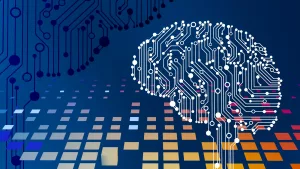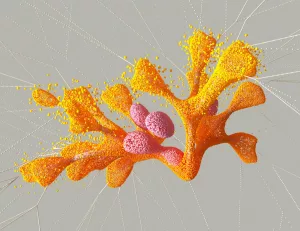The evolution of smart homes is being significantly driven by various innovative technologies that are revolutionizing the way we interact with our living spaces. These advancements not only enhance the convenience and efficiency of our homes but also contribute to a more sustainable and secure living environment. As we delve deeper into the world of smart home technologies, let’s explore the innovations that are transforming our homes into intelligent ecosystems. Artificial Intelligence (AI) plays a pivotal role in the development of smart home technology. Imagine waking up to your favorite music gently increasing in volume, while the blinds open to let in the morning light—all without you lifting a finger. AI-powered devices and systems can learn, adapt, and anticipate user behavior to provide a more personalized and seamless experience. By analyzing user preferences and patterns, AI can automate processes, enhance comfort, and optimize energy efficiency in smart homes.
AI in Daily Life
- Personalized Climate Control: AI systems can learn your preferred temperature settings at different times of the day, adjusting your smart thermostat automatically to ensure comfort and save energy.
- Smart Kitchen Appliances: Consider an AI-enabled refrigerator that suggests recipes based on the ingredients you have, or a smart oven that preheats itself when it knows you’re on your way home.
The Future of AI in Smart Homes
The potential for AI in smart homes is immense. Future developments could see homes that autonomously regulate energy use in response to peak grid demands or systems that predict maintenance needs before a breakdown occurs, significantly reducing repair costs and extending the lifespan of appliances.
The Internet of Things (IoT) is another crucial driver of smart home evolution. IoT enables different devices and appliances to connect and communicate with each other, creating a unified ecosystem that can be controlled and monitored remotely. This interconnectivity allows for a level of home automation that was previously unimaginable.
IoT in Action
- Remote Appliance Control: Imagine you’re at work and suddenly remember you left the oven on. With IoT, you can turn it off with a few taps on your phone.
- Smart Lighting Systems: IoT-enabled lights can adjust based on the time of day, your mood, or even sync with your entertainment systems for an immersive experience.
Enhancing Home Maintenance with IoT
Predictive maintenance is a standout feature of IoT. Sensors can monitor the performance of household systems, like HVAC units, alerting homeowners to potential issues before they escalate. This not only prevents costly repairs but also extends the life of the equipment.
Voice control technology, powered by virtual assistants like Amazon Alexa and Google Assistant, has made it easier for users to interact with and control their smart home devices using simple voice commands. This hands-free approach to managing smart devices allows users to multitask, customize routines, and access information effortlessly, making smart homes more intuitive and user-friendly.
Everyday Use Cases for Voice Control
- Effortless Task Management: Command your virtual assistant to create shopping lists, set reminders, or even order groceries online without interrupting your current tasks.
- Entertainment on Demand: You’re in the kitchen cooking, and you want to catch up on the news. Simply ask your assistant to play the latest news brief on the smart speaker.
Voice Control and Accessibility
Voice control significantly enhances accessibility for the elderly and people with disabilities, offering them greater independence in managing their home environments. This technology can be life-changing, providing easier control over home functions that might otherwise be challenging.
Innovations in energy-efficient technologies have also played a significant role in the evolution of smart homes. From smart thermostats that adjust temperature settings based on occupancy to energy-monitoring devices that track energy consumption in real-time, homeowners can now optimize energy usage and reduce utility bills. Smart home technology empowers users to make informed decisions about energy management and sustainability, contributing to a greener and cost-effective living environment.
Key Energy-Saving Innovations
- Smart Thermostats: These devices use sensors and Wi-Fi technology to learn your schedule and temperature preferences, optimizing heating and cooling systems for energy efficiency.
- Energy Monitoring Systems: Track real-time energy use by appliance or system, providing insights into where you can cut back on consumption.
Real-World Benefits
In practice, these energy-efficient technologies can lead to substantial savings. For instance, a study by the Department of Energy found that smart thermostats can save homeowners an average of 10% on heating and 15% on cooling bills annually.
Security is a top priority for smart homeowners, and advancements in smart security systems have made it easier to monitor and secure homes remotely. Features like facial recognition, smart locks, and video surveillance enhance the overall security of smart homes. With real-time alerts, remote monitoring capabilities, and integrated access controls, smart security systems provide peace of mind and a heightened sense of protection for homeowners and their families.
Advanced Security Features
- Facial Recognition: This technology can identify known individuals and alert homeowners to the presence of strangers, adding a layer of security to smart doorbells and cameras.
- Smart Locks: Allow you to lock and unlock doors remotely, provide temporary access to guests, and eliminate the need for physical keys.
The Impact on Neighborhood Safety
The presence of smart security systems can deter potential intruders, contributing to overall neighborhood safety. Additionally, these systems can be integrated with local law enforcement for quicker response times in emergencies.
Another key innovation driving the evolution of smart homes is the increasing focus on device integration and compatibility. Seamless integration between different smart devices and platforms allows for a more cohesive and interconnected smart home ecosystem. With interoperable technologies and unified control interfaces, users can create customized automation scenarios, establish interconnected networks of devices, and enjoy a streamlined smart home experience that enhances comfort, convenience, and productivity.
Building an Interconnected Home
- Unified Control Systems: Platforms like Samsung SmartThings or Apple HomeKit allow users to control various devices from a single interface, simplifying the user experience.
- Interoperability Standards: The development of standards like Matter ensures that devices from different manufacturers can work together seamlessly.
Overcoming Integration Challenges
Despite their benefits, integrating multiple devices can be complex. Homeowners often face challenges with compatibility and setup. Opting for devices that adhere to common interoperability standards and seeking professional installation for complex systems can alleviate these issues.
As we look to the future, the evolution of smart homes will undoubtedly continue at a rapid pace. Emerging technologies such as augmented reality (AR) and virtual reality (VR) are beginning to find applications within the home environment, offering new ways to interact with and optimize living spaces.
Emerging Technologies on the Horizon
- Augmented Reality for Design: AR apps allow homeowners to visualize furniture and decor in their space before making a purchase, reducing the risk of mismatches and enhancing interior design.
- Virtual Reality Tours: VR can transform how we experience real estate, offering immersive tours of homes from anywhere in the world, which is particularly beneficial for long-distance buyers.
Preparing for Tomorrow’s Smart Home
Staying informed about new technologies and their potential applications in smart homes will be key for homeowners looking to remain at the forefront of innovation. Engaging with online communities and forums can provide valuable insights and support.
In this ever-evolving landscape, the future of smart homes holds endless possibilities. By embracing these innovations, homeowners can create living spaces that are not only more efficient and secure but also more tailored to their personal needs and lifestyles. Whether it’s through AI, IoT, or the next wave of technological advancements, the smart home of tomorrow promises to be a dynamic hub of innovation and comfort.



